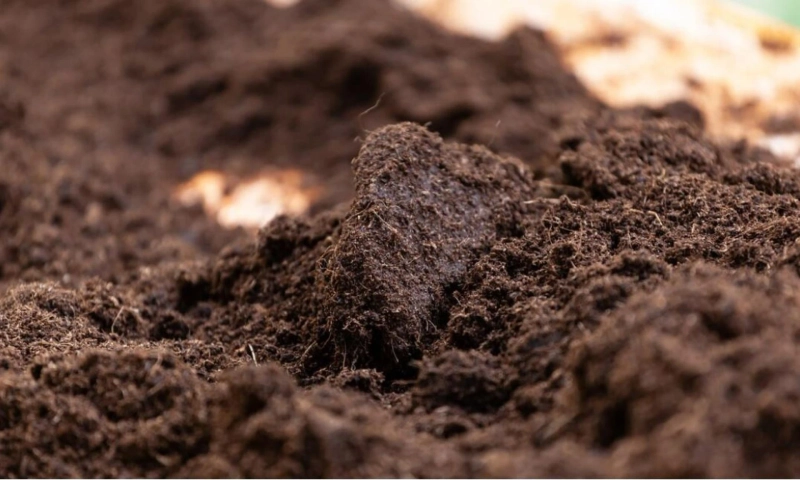Gardening is a rewarding activity that brings us closer to nature, but it can also be challenging. One of the simplest yet most effective practices to enhance your garden's health and appearance is mulching. With convenient mulch delivery services available, it's easier than ever to get started. But what exactly is mulching, and why is it so beneficial?
Mulching involves covering the soil surface around plants with a protective layer of material. This layer can be made of various materials, both organic and inorganic, and offers a plethora of benefits to your garden.
Types of Mulch
Organic Mulch
Wood Chips: Wood chips are a popular choice due to their availability and effectiveness in retaining moisture and adding nutrients to the soil as they decompose.
Straw: Straw is excellent for vegetable gardens. It breaks down relatively quickly, adding organic matter to the soil.
Grass Clippings: These are readily available and provide a nitrogen boost to the soil as they decompose.
Inorganic Mulch
Plastic Sheets: Used primarily for controlling weeds and retaining moisture, plastic sheets can also help in warming the soil.
Gravel: Gravel mulch is durable and great for areas where you don't want plants to grow, like walkways.
Landscape Fabric: This is used under other mulches to provide an extra layer of weed control.
Improves Soil Health
Mulching enhances soil structure by adding organic matter as it breaks down. This organic matter improves the soil's ability to retain nutrients and water, creating a healthier environment for plant roots. Additionally, mulch encourages the growth of beneficial microorganisms that contribute to soil fertility.
Moisture Retention
Mulch acts as a barrier, reducing the evaporation of water from the soil. This is particularly beneficial during hot, dry periods, as it conserves water and reduces the need for frequent watering.
Weed Control
One of the most immediate benefits of mulching is its ability to suppress weed growth. By covering the soil, mulch blocks sunlight from reaching weed seeds, preventing them from germinating and growing. This reduces the need for chemical herbicides, making your garden more eco-friendly.
Temperature Regulation
Mulch acts as an insulator for the soil. During hot summer months, it keeps the soil cooler, protecting plant roots from extreme heat. In winter, it helps retain soil warmth, protecting roots from frost.
Erosion Prevention
By covering the soil, mulch helps prevent erosion caused by wind and water. This is particularly important in areas prone to heavy rain, as it keeps the soil intact and prevents nutrient loss.
Aesthetic Appeal
Mulch enhances the visual appeal of your garden. With a variety of colors and textures available, you can choose a mulch that complements your garden's design, creating a polished and well-maintained look.
Reduces Soil Compaction
Heavy rains and foot traffic can compact the soil, making it difficult for roots to grow. Mulch helps reduce soil compaction by cushioning the soil surface and promoting better root growth.
Promotes Healthy Root Growth
Mulch helps maintain a stable soil temperature, which is crucial for root development. By keeping roots cooler in summer and warmer in winter, mulch promotes healthy root growth and overall plant health.
Pest Control
Certain types of mulch, like cedar and cypress, naturally deter pests. Mulch also encourages the presence of beneficial insects that help control pest populations, contributing to a balanced garden ecosystem.
Environmentally Friendly
Using organic mulch recycles garden waste and reduces landfill contributions. It's a sustainable practice that supports eco-friendly gardening by reducing the need for chemical fertilizers and herbicides.
Cost-Effectiveness
While some types of mulch can be an initial investment, the long-term benefits and low maintenance requirements make mulching a cost-effective practice. It reduces the need for frequent watering, weeding, and soil amendments, saving you time and money in the long run.
How to Apply Mulch
Applying mulch correctly is key to reaping its benefits. Generally, a 2-4 inch layer of mulch is ideal. Spread it evenly around the base of your plants, leaving a small gap around the stems to prevent rot. The best time to mulch is in late spring, after the soil has warmed up but before the summer heat.
Common Mistakes to Avoid
Avoid over-mulching, which can suffocate plant roots and cause excessive moisture retention, leading to root rot. Also, be mindful of using the correct type of mulch for your specific plants and soil conditions. Some mulches, like fresh grass clippings, can be too rich in nitrogen and harm plants if used excessively.
Conclusion
Mulching is a simple yet powerful tool in the gardener's arsenal. It improves soil health, conserves moisture, controls weeds, regulates soil temperature, prevents erosion, enhances garden aesthetics, and more. By incorporating mulching into your gardening routine, you can create a healthier, more beautiful garden with less effort and expense.
FAQs
How Often Should I Reapply Mulch?
Mulch should be reapplied once or twice a year, typically in spring and fall, to maintain its effectiveness and appearance.
Can Mulch Attract Pests?
While some organic mulches can attract pests, using pest-resistant types like cedar or cypress can help deter them.
What is the Best Mulch for Vegetable Gardens?
Straw and compost are excellent choices for vegetable gardens as they break down quickly and add valuable nutrients to the soil.
How Thick Should My Mulch Layer Be?
A 2-4 inch layer is generally recommended. Too thin won't be effective, and too thick can cause root issues.
Is Dyed Mulch Safe for Plants?
Dyed mulch is generally safe for plants, but it's best to use natural, undyed mulch in edible gardens to avoid any potential chemicals leaching into the soil.



